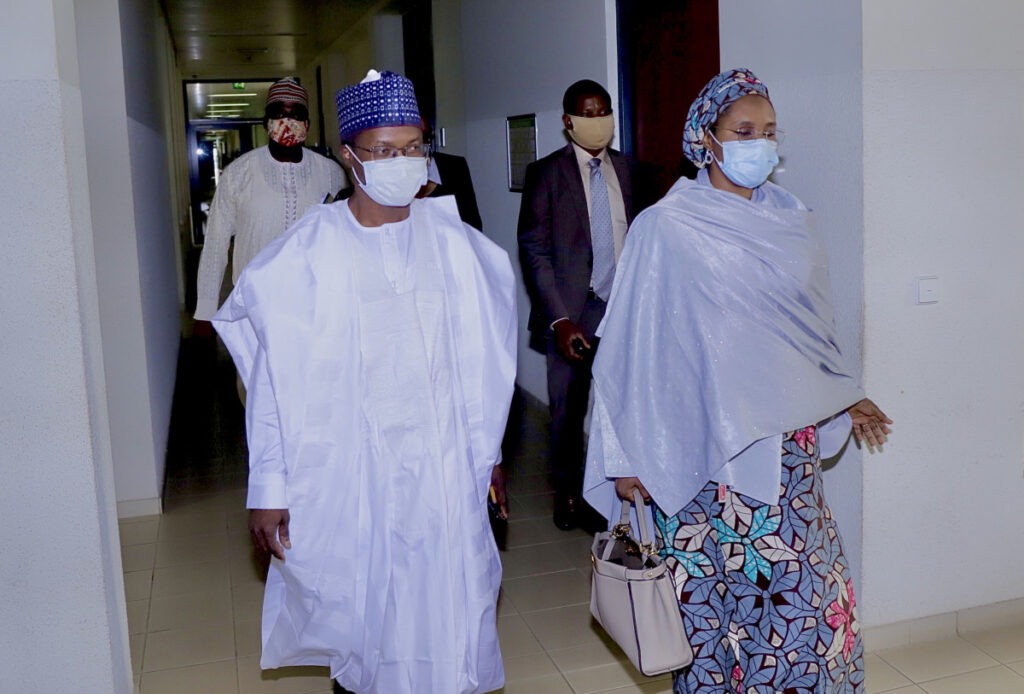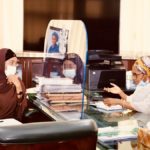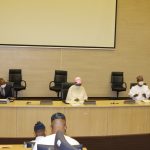..As Finance Minister Calls For Another Level Of Reform Process To Develop An Integrated Approach
The President of Senate, Ahmad Lawan, on Monday charged the Senate Committee on Power to look at what has happened to the agreement signed in 2013 on the privatisation of the power sector.

He gave the charge while declaring open an Investigative Public Hearing by the Senate Committee on Power. The public hearing was on the “Power Sector Recovery Plan and the impact of COVID-19 Pandemic.”
The Power Holding Company of Nigeria (PHCN) was in 2013 unbundled to pave way for the emergence of six Generating Companies (GENCOs), 11 Distribution Companies (DISCOs), and one Transmission Companies of Nigeria. Both the GENCOS and DISCOs are fully privatised outfits.
The Senate President said: “When you have privatisation, you have Share Purchase Agreement. This investigation should look at what has happened. “Government should not be given free money. N1.8 trillion has been given to DISCOs may be in their books. The actual money might have been given to the GENCOs. “N1.8 trillion is a huge amount of money. Is it part of the Share Purchase Agreement that we should be given this kind of money or what are we supposed to do as a government?
Lawan, however, said that he would rather call for a review of the privatisation deal and not for an outright cancellation of the deal. “While I will not call for an outright reversal of the privatisation that was done in 2013, I believe the time has come for us to review it.
Also speaking in her opening remarks at the senate investigative hearing on the power sector recovery plan, Mrs. (Dr.) Zainab Ahmed, the Honourable Minister of Finance, Budget And National Planning, said: “It is expected that the power sector should soon be on a sustainable recovery path when all initiated projects get all necessary approvals and implementation becomes fully operational.

After highlighting the challenges that have bedeviled the Nigerian power sector, she also said: “To this end the FGN has initiated several projects in conjunction with Development Partners to revamp the Power Sector. These initiatives are work in progress with the World Bank, African Development Bank (AfDB), French Development Agency (AFD), and China-Exim Bank among others. The Projects include: Nigeria Electricity Transmission and Access Project – USD$486 million World Bank – Approved; Nigeria Electrification Project – USD$350 million (World Bank) and USD$200 million African Development bank (AfDB) – undergoing approval processes; North Core Dorsale Nord Interconnector Project – USD$26 million World Bank Regional – undergoing approval processes; Abuja Power Feeding Scheme – USD$170 million – AFD undergoing approval processes; Power Sector Recovery Program for Results (World Bank) – USD$750 million – ongoing approval processes; and Zungeru 700MW Hydro-Power Project – USD$984,323,013.08 (China EXIM Bank) – Approval.
She finally stated that most of the above listed programs are part of the Power Sector Recovery Program “which is designed to restore the financial viability of Nigeria’s power sector, improve transparency and service delivery, resolve consumer complaints, reduce losses and energy theft and reset the Nigerian electricity supply industry for future growth. The first part of the PSRP has recently been negotiated and expected to commence implementation once all necessary conditions and procedures have been met. “These interventions are all made possible due to the role of the Federal Ministry of Finance, Budget and National Planning as the borrower and are at various stages of implementation,” she said further.
Speaking on outcome of the transition of the key components of the power sector from a publicly owned to largely privately owned, Ahmed said: “It did not bring the expected outcomes and the sector has been under a lot of stress, especially in terms of liquidity. The challenges in the sector include: Distribution Companies on the average currently report only about 40 percent of Aggregated Technical and Commercial Losses; Tariff regulation and all market contracts have not been enforced since privatization; and federal government has been spending billions to fund tariff shortfalls and its liabilities are increasing steadily every year.
On the expected contributions by the stakeholders, the Honourable Minister said: “Key stakeholders in the sector all fell short of expected contributions for achieving the desired turnaround envisaged by the reform initiatives. We are of the view that another level of reform process is required to develop an integrated approach for resolving regulatory and policy failures, establish a fiscally sustainable financing plan by the federal government to ensure full funding for tariff shortfalls and implementation of a comprehensive performance improvement plans.
According to Dr. Gabriel Suswan, Chairman Senate Committee on Power, the federal government has spent over N1.5 trillion between 2013 and 2014 to support the power sector. But there is no tangible result.
In his words: “It is unacceptable that the government is still sourcing funds for the project when results have not shown; the earlier commitments have not borne fruit. The National Assembly needs to review and investigate the process and all the institutions involved to find out how to resolve the issues.






